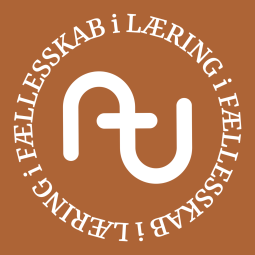Livestreaming: Alzheimer, a complex disease is decrypted

Dementia is a devastating disease affecting the lives of 47 million people. Alzheimer's disease is the most common form of dementia and although there is no cure, intense research has paved the way for better understanding and therapeutic treatments.
Alzheimer, a complex disease is decrypted
v/Christian Haass, professor of molecular biology, Ludwig-Maximilians University Munich, Germany
Professor Christian Haass is the latest receiver of the greatest prize in brain research, The Brain Prize. We are happy to announce that he will give the associated public lecture 'The Brain Prize public lecture' at this lecture series: Offentlige foredrag i Naturvidenskab (Public Lectures in Natural Science). In the lecture, he will talk about the research that led to him being awarded the prize.
The molecular clockwork of Alzheimer’s disease. No other disease is threatening our society as much as Alzheimer’s disease. Every three seconds someone on our planet is hit by Alzheimer’s disease and by 2050 we expect more than 131 million Alzheimer’s patients worldwide! Thus, we urgently need treatment to prevent a collapse of our ageing society. The only way to reach this ambitious goal is a detailed understanding of the mechanisms, which destroy our memory. In all Alzheimer’s brains, clumps of poisonous proteins, so called plaques and tangles, are deposited and kill our nervous cells.
In many years the genesis of these plaques in our brains, was thought to occur solely under pathogenic circumstances and thus primarily during aging. However, Haass proved that the basic mechanism involved in the constant generation of the building blocks of plaques is active in all of us from birth, which may explain the enormous risk we all have of suffering from Alzheimer’s disease at some point.
Christian Haass will demonstrate that based on the discoveries of these mechanisms, treatment strategies have been developed aiming to slow or even prevent Alzheimer’s disease. Such approaches can indeed prevent the accumulation of plaques in human patients, but so far they fail to stop the memory loss. Is this a disaster indicating that scientists have worked on the wrong mechanisms? Christian Haass does not think so, he will rather demonstrate that plaque deposition starts decades before clinicians observe any memory decline. The deposits in our brains slowly begin their deadly job by killing neurons early on and by the time memory loss becomes apparent, the brain is irrevocably damaged with the consequence that any treatment comes too late. Thus, we do not only need efficacious and safe treatment strategies, but we must develop novel technologies to identify patients, which are at risk to develop Alzheimer’s disease, at a time when no memory loss is observed.
BEMÆRK: Foredraget afholdes på engelsk.
PRAKTIK: Ønsker du at deltage i denne aktivitet, skal du ikke tilmelde dig her på siden. I stedet skal du møde op på livestreaming-stedet:
Aabenraa, Bylderup-Bov, Esbjerg, Faaborg, Fanø, Fredericia, Haderslev, Kolding, Langeskov, Løgumkloster, Marstal, Middelfart, Rudkøbing, Svendborg, Vejen, Vojens.
Du kan se detaljerne for livestreamingen her!
Efter foredraget skal du skrive til kira@atusyd.dk, at du har været til foredraget, og det vil så blive registreret på din aktivitetsoversigt.
Der er ingen spisepause eller forplejning.
BEMÆRK: Aktiviteten afvikles i samarbejde med Offentlige foredrag i Naturvidenskab, AU, hvorfor også andre end ATU'ere kan deltage.
AFVIKLER: Der er ingen afvikler fra ATU til stede til disse livestreamings.
-
TypeValgfri




 Find us on Facebook
Find us on Facebook
 Join our network
Join our network